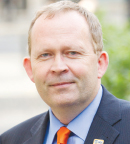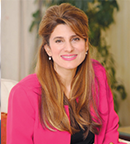Today’s World Cancer Day, led by the Union for International Cancer Control (UICC), aims to mobilize urgent action from individuals, governments, and the global cancer community to close gaps in cancer risk awareness between higher and lower socioeconomic groups and the subsequent impact on their health-promoting behaviors.
To mark the 20th anniversary of World Cancer Day, UICC commissioned a global survey to form an up-to-date picture of the public’s experiences, views, and behaviors around cancer. Conducted by Ipsos, the survey included more than 15,000 adults across 20 countries and is the first multicountry public survey on cancer perceptions in a decade. The survey’s results, detailed in UICC’s report released today, International Public Opinion Survey on Cancer 2020, indicate a clear divide between higher and lower socioeconomic groups when it comes to knowledge and awareness of cancer risks and, as a result, the practice of behaviors to limit such risk.

“It is unacceptable that millions of people have a greater chance of developing cancer in their lifetime, because they are simply not aware of the cancer risks to avoid and the healthy behaviors to adopt—information that many of us take for granted. And this is true around the world.”— Cary Adams, MBA, BSc (Hons)
Tweet this quote
UICC Chief Executive Officer Cary Adams, MBA, BSc (Hons), said, “It is unacceptable that millions of people have a greater chance of developing cancer in their lifetime, because they are simply not aware of the cancer risks to avoid and the healthy behaviors to adopt—information that many of us take for granted. And this is true around the world.”
Awareness of Risk and Prevention
The survey’s results show that there is generally a high level of cancer awareness among the surveyed population globally. Tobacco use (63%), exposure to harmful ultraviolet rays (54%), and exposure to tobacco smoke from others (50%) appear to be the most recognized factors that can increase a person’s risk of cancer. Meanwhile, a lack of exercise (28%), exposure to certain viruses or bacteria (28%), and being overweight (29%) appear to be the least recognized cancer risk factors.
However, individuals from a lower-income household bracket in the countries surveyed are less likely to recognize cancer risk factors than those from higher-income households. In all areas except tobacco use, this trend can also be seen when comparing people surveyed who have not completed a university education to those with university educations.
Irrespective of where people live in the world, those surveyed with a lower education and a lower income appeared to be less aware of the main risk factors associated with cancer. They also appeared less likely to proactively take the steps needed to reduce their cancer risk than those from a high-income household or with a university education.
What Should Be Done

“To tackle the global cancer burden now and for the future, governments and decision-makers across the international cancer community must come together to ensure that everyone is afforded every opportunity to take control over their cancer risk—no matter their education or income level.”— Princess Dina Mired of Jordan
Tweet this quote
Eighty-four percent of individuals surveyed felt that governments should be taking action in relation to cancer, and nearly a third of individuals surveyed believed that it is most important for governments to improve the affordability of cancer services—a measure notably emphasized by people surveyed in lower middle-income countries.
UICC President Her Royal Highness Princess Dina Mired of Jordan, said, “To tackle the global cancer burden now and for the future, governments and decision-makers across the international cancer community must come together to ensure that everyone is afforded every opportunity to take control over their cancer risk—no matter their education or income level.”
To help raise greater awareness around cancer and to support health-promoting behaviors, UICC is calling for all governments to:
- Prioritize cancer awareness and prevention through progressive health policies and education to support healthy decisions and health-promoting behavior, with a focus on engaging lower socioeconomic populations
- Ensure the public is provided with up-to-date information on cancer risks and cancer prevention, and importantly, that the information is presented and delivered in a way that is accessible by individuals from lower socioeconomic backgrounds
- Implement policies to help reduce the consumption of known cancer-causing products(eg, tobacco and sugary food/beverages), to encourage health-promoting behaviors, particularly among lower socioeconomic groups
- Invest proactively in national cancer control planning and the establishment of population-based registries to ensure the most effective resource allocation that benefits all groups
- Continue to raise awareness with each new generation to help ensure that up-to-date information on cancer risks and cancer prevention is not taken for granted.
About World Cancer Day
World Cancer Day takes place every year on February 4th and is the uniting global initiative under which the world comes together to raise the profile of cancer in a positive and inspiring way. Spearheaded by UICC, the day aims to save millions of preventable deaths each year by raising awareness and improving education about the disease while calling for action from governments and individuals across the world.
World Cancer Day 2020 will be led by the theme ‘I Am and I Will’, a call for personal commitment which represents the power of our actions taken now to reduce the growing impact of cancer.
This year follows the the 2019 campaign, which saw nearly 1,000 activities taking place in 127 countries, over 700,000 social media posts, and 62 governments participating in the initiative.

